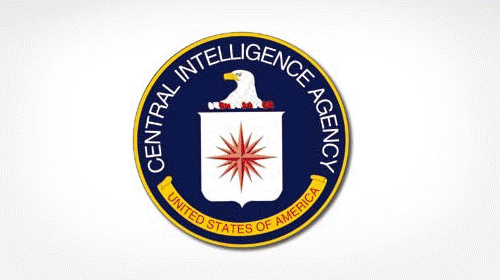(Article changed on January 18, 2014 at 14:25)
The arguments being presented by the defenders of the NSA Stasi's metadata harvesting efforts, in particular by federal judge William Pauley whose post-Christmas ruling erected a firewall for the activities of the unconstitutional fascist surveillance state should be carefully scrutinized. A recent article in The New Yorker entitled "The Al Qaeda Switchboard" poses some critical questions for arguments made to justify the intrusions on the telephone data of tens of millions of law abiding Americans. The story which was written by the Pulitzer Prize winning Lawrence Wright who wrote the book "The Looming Tower: Al-Qaeda and the Road to 9/11" reports that both the NSA and CIA already had the information that could have prevented the attacks yet for whatever reason, the Central Intelligence Agency which has an extensive history of subterfuge as well as an ongoing disregard for the law withheld the critical information from the FBI.
This is a very interesting article and is of particular relevance especially so after Tuesday's Senate Judiciary Committee hearings where questions were posed to Obama's surveillance review panel and prior to the Friday's speech that will be laying out "smart changes" (translation: cosmetic bullshit) as far as implementing controls over a rogue agency. While the entrenched defenders of the fascist surveillance state continue to write their columns, appear on television talk shows to recite talking points and otherwise engage in the all too standard post September 11, 2001 use of fear-mongering to preserve their oppressive programs of which a formal explanation of exactly why all of that information on innocent citizens is needed. Before I go into the New Yorker column please note the following on metadata from a piece by former NSA analyst Kirk Wiebe over at Antiwar.com entitled "NSA's Preference for Metadata":
Metadata collection can answer all but one of the five "W's" of journalism: the Who, What, Where and When. Given time, it can even respond to "Why" someone interfaces with digital information systems the way they do. It can do this because it is possible to discern patterns of behavior in metadata.
A very simple example: You go to work via a toll road, taking essentially the same route five days a week, for about 48 weeks a year. A license plate scanner produces information about where your car was when it was scanned -- and at what time. Your passive transponder (e.g., E-Z Pass) records your entrance onto the toll road at which ramp, and when you were there. The same transponder reports when and where you got off the toll road.
You stopped to get gas. Your credit card records where you were and when you bought the gas. You arrive at work and turn on your computer. Your Internet service provider (ISP) records when an IP address was given to your computer and what time it was provided. The IP address is associated with a server at a location with a specific address and is associated with your name.
So it is possible to know when you arrived at work. Or perhaps you called your wife to tell her you arrived safely. Your phone has locational information and the time of the call is recorded. Of course, the phone is associated with your account/name.
Similarly, any deviation from these patterns -- for whatever reason -- would also be apparent. A consistent deviation might reveal a significant change in your personal life (e. g. job trouble, health problems, marital difficulties).
Just a necessary and well-written bit of context as to what the actual data that the NSA Stasi and its serpents nest of defenders are fighting to keep gathering on American citizens - not terrorists - at least not yet until the day arrives when the crackdown comes and the elimination of dissidents and political problems is put into action. While this metadata and the pattern analysis could at least in theory be used to ferret out and monitor actual terrorists (as they are currently defined) the real underlying problem is that this is being used against all Americans and without warrants as well as through the authorization of a secret court that the actual judiciary powers of the U.S. that operate outside of such secrecy are now mounting a push to reject any oversight of.
Now to the Wright piece, "The Al Qaeda Switchboard" from which I will excerpt several paragraphs in the interest of the greater good so that this critical information can be shared:
Last month, two federal judges came to opposing conclusions about these issues. On December 16th, Judge Richard J. Leon, in Washington, D.C., ruled that the indiscriminate hoarding violates the Fourth Amendment right to privacy and its prohibition of unreasonable searches. Two weeks later, in New York, Judge William H. Pauley III ruled that the metadata-collection program was lawful and effective.
Judge Pauley invoked the example of Khalid al-Mihdhar, a Saudi jihadist who worked for Al Qaeda. On 9/11, he was one of the five hijackers of American Airlines Flight 77, which crashed into the Pentagon. In early 2000, Mihdhar made seven calls from San Diego to an Al Qaeda safe house in Yemen. According to Pauley, the N.S.A. intercepted the calls, but couldn't identify where Mihdhar was calling from. Relying on testimony by Robert Mueller, the former director of the F.B.I., Pauley concluded that metadata collection could have allowed the bureau to discover that the calls were being made from the U.S., in which case the bureau could have stopped 9/11.
If he is right, advocates of extensive monitoring by the government have a strong case. But the Mihdhar calls tell a different story about why the bureau failed to prevent the catastrophe. The C.I.A. withheld crucial intelligence from the F.B.I., which has the ultimate authority to investigate terrorism in the U.S. and attacks on Americans abroad.
In August, 1998, truck bombs destroyed two American Embassies, in Kenya and Tanzania, killing two hundred and twenty-four people. Three days later, F.B.I. investigators captured a young Saudi named Mohammad al-"Owhali at a hotel outside Nairobi. He had fresh stitches in his forehead and bloody bandages on his hands. In his pocket were eight brand-new hundred-dollar bills. Two skilled interrogators, Steve Gaudin and John Anticev, persuaded "Owhali to write down the number he called after the bombing. It belonged to Khalid al-Mihdhar's father-in-law, Ahmed al-Hada, and was one of the most important pieces of information ever obtained in the effort to prevent terrorist acts in the U.S. It became known as the Al Qaeda switchboard.
The N.S.A.'s tracking of calls to and from the Hada household allowed the F.B.I. to map the global network of Al Qaeda. But not all the information was shared. In 1999, Mihdhar's name surfaced in one of the recorded calls, linking him to Al Qaeda. "Something nefarious might be afoot," an N.S.A. analyst wrote, but Mihdhar's name was not passed on to the F.B.I.
(Note: You can view every article as one long page if you sign up as an Advocate Member, or higher).






